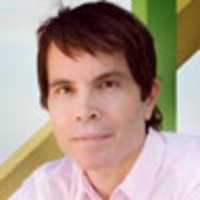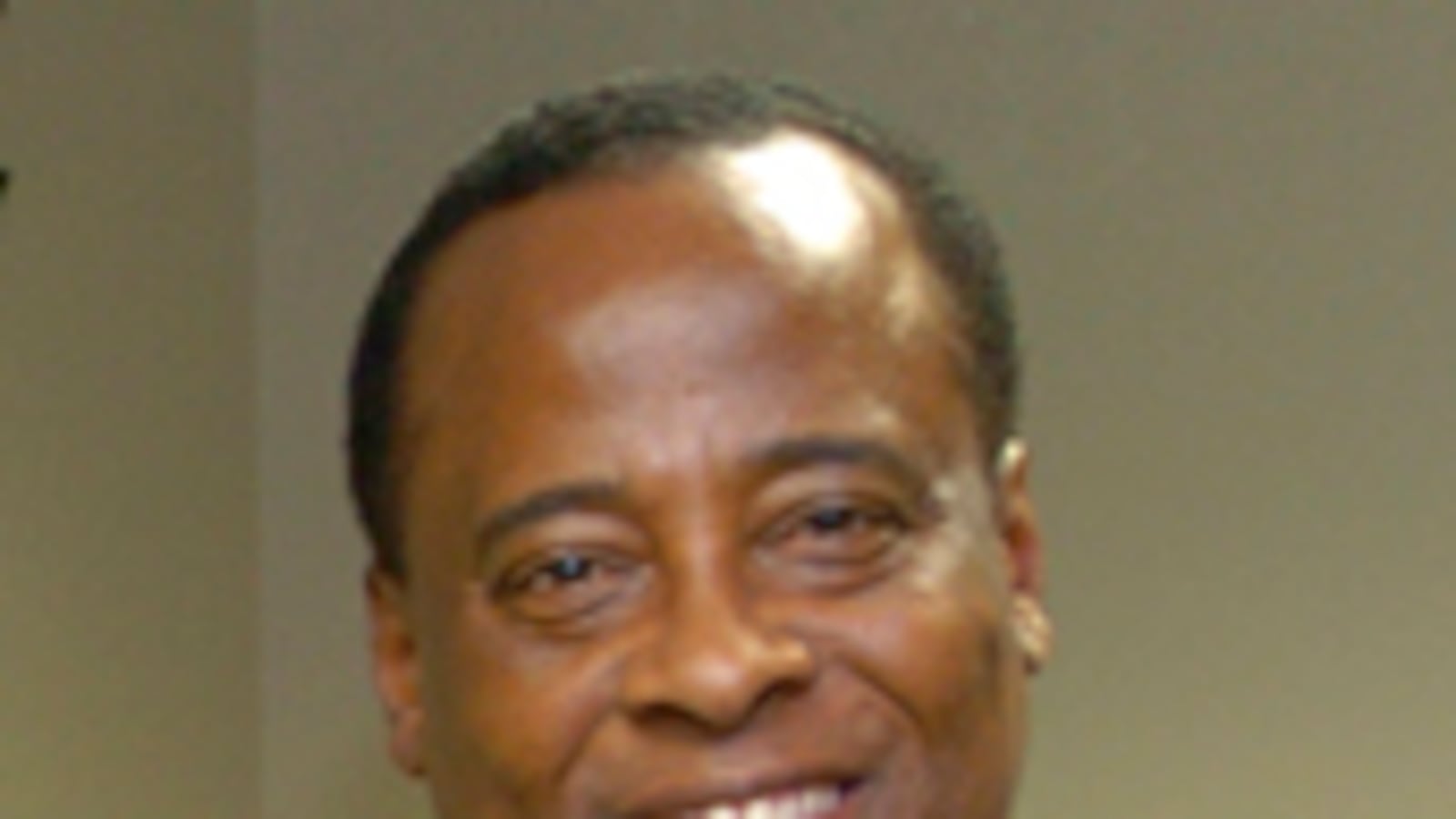
In his first interview since Michael Jackson’s death, which the L.A. Coroner's Office said was caused by an injection of propofol, the doctor who is at the center of the King of Pop homicide investigation frets about being a scapegoat, and insists that he wants to be exonerated.
Yesterday I was the first journalist to meet and interview Dr. Conrad Murray, the physician who is the target of the Los Angeles police investigation into Michael Jackson’s death. After several weeks of back and forth with his defense counsel, they finally agreed to let me talk their client. He had, of course, been besieged by daily interview requests from people known for getting access first, including Diane Sawyer, Barbara Walters, and Larry King. But one of the lead partners on his defense team had read my book, Why America Slept, and concluded that my investigative background, and law degree, made me the right first person to sit down with the doctor.
In his first interview since Michael Jackson’s death, the doctor who was there when the King of Pop died frets about being a scapegoat, and insists that he wants to be exonerated.
The only condition was that I describe the place where I interviewed Dr. Murray as “an undisclosed location.” I arrived, by coincidence, half an hour after the one-minute video made by his lawyers last Wednesday had been posted on YouTube. I watched that before I met the doctor, so I had some idea of how he spoke and that he had a slight Caribbean-tinged accent. But when I met him, the personal impact was much stronger than the video. At 6-foot-5, and a lanky frame, he has a calm demeanor that belies the tremendous pressure he is under. Dressed in a conservative navy blue suit, white shirt, and red tie, with his sweeping gestures and soft voice, he seemed almost more a professor than a physician. But I was quickly disabused of the quiet-professor appearance when he informed me right off that he now travels now with a bodyguard, unsure of his own safety after receiving multiple death threats.
Nothing was off limits for our talk. But unsurprisingly, he did not comment on any aspect of the ongoing investigation, especially since prosecutors are now in the final stages of deciding whether or not to indict him.
In our nearly two-hour conversation, he locked eyes, spoke firmly and without any hesitation, and was deliberate and succinct in answering questions. I’ve interviewed literally thousands of people during 25 years of writing 10 books and hundreds of articles, and as a reporter you develop a gut intuition about those your interview. I was not certain what to expect before I met him, whether I’d conclude he was shifty or untrustworthy, but instead I was impressed with his apparent sincerity, especially when talking about the effect on his life since the pop star’s death. He admitted it had been “terrible.” He cited an article in People that mentioned how many of his former patients praised his work, and another that ran at nearly the same time that said he had provided prescriptions to the singer James Brown. Of course, the latter received by far the widest coverage. It’s convinced Murray that the press “is mostly interested in bad news and gossip.”
Murray talked with some passion about how he had paid his way through medical school and spent the better part of 20 years serving a disadvantaged area of Houston that had been mostly ignored by doctors. He went out of his way to say that for most of his career, “Money was never my motivation,” and he cited the repeated chances that he bypassed for a more lucrative practice, so that he could instead focus on the downtrodden Houston neighborhood where he opened his clinic. Now he frets that those decades of service will be lost in the shadow of being “the last man standing” when Michael Jackson died.
What is particularly infuriating to him are the tags that are now attached to him in many press reports, “concierge doctor” or “enabling doctor.” “I am neither,” he says, visibly upset. When I mention Michael Jackson at one point, he interrupts me, to say “my friend.” It stops me in mid-sentence because I had always assumed that the relationship between Conrad Murray and Jackson was doctor-patient only, but Murray to seemed genuine with his comment.
What is your biggest worry? Without hesitating he says, “That I will be made the scapegoat.” For whom? He doesn’t want to blame others, doctors, or business advisers around Jackson, but clearly he has his own ideas of some of those who were responsible for any of the pop star’s problems near the end of his life.
I later talked to some of Murray’s defense team. Ed Chernoff, the lead attorney, said he just hoped that the Los Angeles Police would stop leaking and convicting his client in the press. Now that the case is with prosecutors, bound by a judicial code of ethics, he thinks the leaks will stop. And Chernoff said he hopes that the prosecutors will understand the intricacies of what occurred and won’t issue any criminal indictments. But they are fully prepared for any indictment, and confident about prevailing before a jury. “Dr. Murray told the truth from the very first interviews with the police,” said Matt Alford, one of Chernoff’s partners and a ranking member of the defense team. “His story has never changed.”
When I tell Dr. Murray of his attorney’s confidence, he shrugs. “I have always believed that if I simply tell the truth, I will be exonerated.” What does that mean to him? He doesn’t want just an acquittal where people will say he walked free because he had better experts, or some technicality, or the jury was tilted in his favor. Instead, exoneration to him means, “getting my reputation back. I will regain my dignity.” It’s a tall order. But Murray and his defense team stand ready for battle.
Gerald Posner is The Daily Beast's chief investigative reporter. He's the award-winning author of 10 investigative nonfiction bestsellers, ranging from political assassinations, to Nazi war criminals, to 9/11, to terrorism. He lives in Miami Beach with his wife, the author Trisha Posner.






